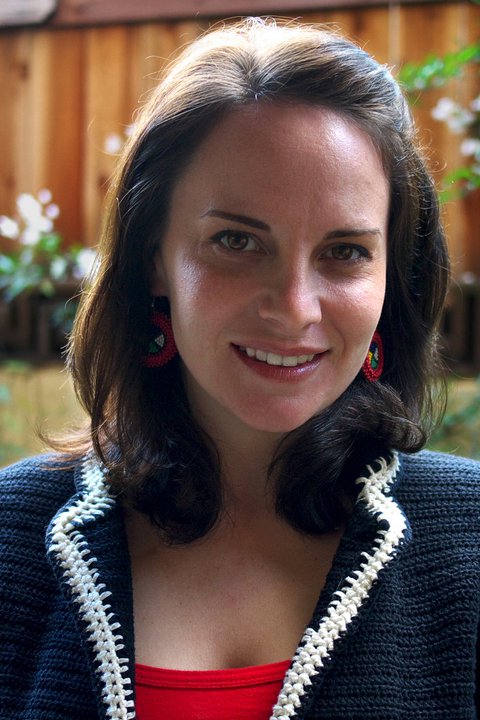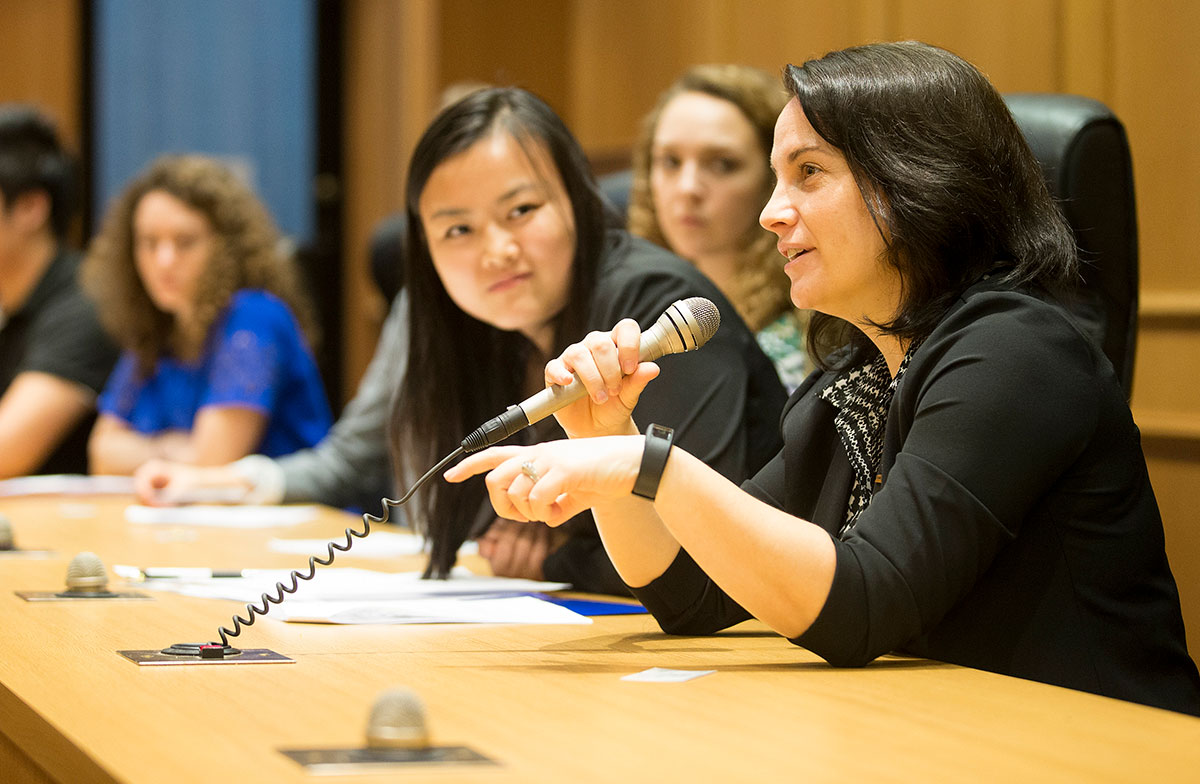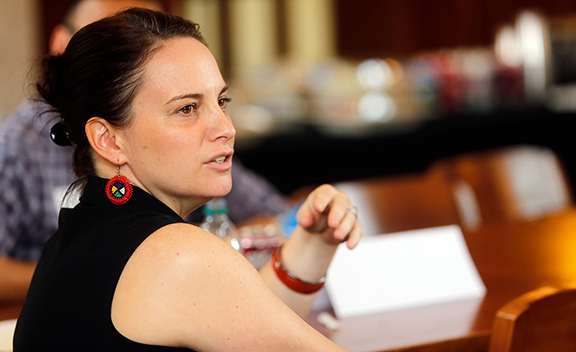Home » TIPs 2017 » Meet the Vanderbilt LGBT Policy Lab Faculty: Assistant Professor Tara McKay
Meet the Vanderbilt LGBT Policy Lab Faculty: Assistant Professor Tara McKay
Posted by anderc8 on Tuesday, December 5, 2017 in TIPs 2017.
Written by Stephanie Wang, Vanderbilt Class of 2021
As a way to introduce you to faculty from the LGBT Policy Lab, first-year student Stephanie Wang will interview a different faculty member approximately each month and write a brief faculty profile. Stephanie reached out to the Vanderbilt LGBT Policy Lab prior to her arrival on campus this fall, as she is passionate about the issues being addressed in the TIPS project. Stephanie arrived at Vanderbilt from Pittsburgh, where she was active in a political activism organization, a robotics team, the varsity swim team as well as several writing publications. She plans to major in Computer Science. At Vanderbilt, she writes for the Hustler, the Slant and the Vanderbilt Political Review. She is also involved with the Engineering Council and the Community Building, Outreach and Diversity Committee of Vanderbilt Student Government.
To inform each Vanderbilt LGBT Policy Lab faculty profile, Stephanie is asking a range of questions, such as: What is the faculty member’s background? How did the faculty member become interested in research on LGBT public policies? How are LGBT issues treated in the faculty member’s broader academic discipline? The third faculty member to be profiled in this series is Tara McKay, Assistant Professor of Medicine, Health and Society.

Assistant Professor Tara McKay
For the past 12 years, Tara McKay has been involved in LGBT research. As an undergraduate at Occidental College, she had strong interests in gender and sexuality. After graduating, she started working for AIDS Project Los Angeles, one of a few international AIDS organizations that also conducts its own research. There, she began working with interdisciplinary research teams on young gay men’s sexual health in Los Angeles and New York. When this experience took her to graduate school at UCLA, she continued studying HIV, this time in Malawi, a small country in southern Africa. While in Malawi, McKay saw first-hand how gay men’s sexual health and global HIV policy were intertwined. In December 2009, two Malawians were arrested and ultimately convicted of sodomy. Watching this trial unfold and interviewing Malawians throughout the proceedings in 2010 shaped McKay’s research agenda for several years and started her on a path towards her current work on LGBT organizing, health and rights in criminalized contexts.
Today, McKay is conducting research on LGBT organizing, rights and health in four African countries – Malawi, Nigeria, Senegal and Mozambique. These countries are moving in substantially different directions regarding HIV and LGBT policy, and McKay has been studying how rights have been navigated differently in these countries, how people have responded and how it has impacted health and health policy. She has used this expertise to provide expert testimony in LGBT asylum cases originating from the African continent, one of which was recently successful. By presenting shorter versions of her findings to the U.S. State Department Office and other policymakers, McKay has used her research to inform global health and development work on the continent.

Vanderbilt Assistant Professor Tara McKay asks a question during a meeting with legislators at “The Nation’s Health” day on the hill.
In addition to working on LGBT rights and health in criminalized contexts on the African continent, she is also working with Professor of Economics Kitt Carpenter, Assistant Professor of Health Policy Gilbert Gonzales and graduate student Sam Eppink on a Robert Wood Johnson Foundation project focused on how U.S. domestic LGBT policies like marriage equality have influenced health, access to healthcare and family outcomes. McKay is also leading a study of how social networks, health and major life events are intertwined. This study focuses on older LGBT adults in the San Francisco Bay Area and follows them for three years to see how networks, health and life events change over time. With these data, she hopes to unpack how social networks affect health and how health and life events impact social networks.
 Beyond her research on LGBT health and policy, McKay is a strong LGBT advocate on Vanderbilt’s campus – she recently received the LGBTQIA Center’s Allyship of the Year award – and regularly tries to bring LGBT centered films to campus through the International Lens (iLens) Film Series hosted by Student Life. As an assistant professor of Medicine, Health and Society, McKay teaches a course on Health Policy and Advocacy alongside Gonzales. This course and others offered in MHS spend at least a few weeks on LGBT health in different contexts.
Beyond her research on LGBT health and policy, McKay is a strong LGBT advocate on Vanderbilt’s campus – she recently received the LGBTQIA Center’s Allyship of the Year award – and regularly tries to bring LGBT centered films to campus through the International Lens (iLens) Film Series hosted by Student Life. As an assistant professor of Medicine, Health and Society, McKay teaches a course on Health Policy and Advocacy alongside Gonzales. This course and others offered in MHS spend at least a few weeks on LGBT health in different contexts.
In the future, McKay anticipates expanding her comparative work on the African continent and contributing to U.S. domestic policy on LGBT aging through her study of social networks and health in the San Francisco Bay Area.
On why LGBT research is important to her, McKay says, “People haven’t spent a lot of time thinking about how LGBT-identified people and their communities might be affected by different policies and practices. In the African context, LGBT groups and activists are really leading the way for a lot of new kinds of organizing and activism. This is important not just for advancing human rights, but also for research in sociology, policy and health. It’s important for academia to be more inclusive, to value and create space for LGBT people to be visible, and to make sure that they are ultimately included in terms of data collection. These are my friends, family and colleagues, and I want to make sure they’re represented.”
